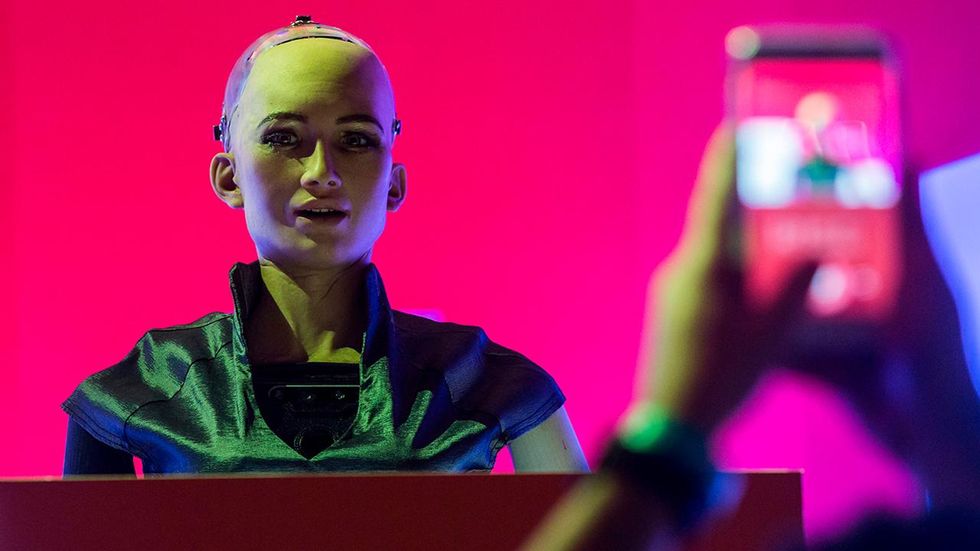
Sophia the Robot' is seen on stage on July 10 before a discussion by Hanson Robotics about Sophia's multiple intelligences and artificial intelligence (AI) at the RISE Technology Conference in Hong Kong. (Photo by ISAAC LAWRENCE/AFP/Getty Images)

Artificial Intelligence is more of a threat to Britain than antibiotic resistance, climate change, or terrorism, according to the incoming president of the British Science Association.
Jim Al-Khalili, a professor of physics and public engagement at the University of Surrey, said the threat is linked to “unprecedented technological progress” in AI that is quickly unfolding without proper oversight and regulations, the Telegraph reported.
Al-Khalili believes AI’s threat to jobs and security had not been fully quantified, and he urged the government to quickly develop regulations for the technology.
He made the comments in London, ahead of his appearance at the British Science Festival in Hull next week.
"Until maybe a couple of years ago had I been asked what is the most pressing and important conversation we should be having about our future, I might have said climate change or one of the other big challenges facing humanity, such as terrorism, antimicrobial resistance, the threat of pandemics or world poverty,” Al-Khalili said.
“But today I am certain the most important conversation we should be having is about the future of AI. It will dominate what happens with all of these other issues for better or for worse," he continued.
"If Russian cyber hackers were able to meddle with the 2016 U.S. elections, then what is stopping cyber terrorists from hacking into any future AI controlled power grids, transport systems, banks of military installations," he added. “Our government has a responsibility to protect society from potential threats and risks.”
Artificial Intelligence and robotics are part of what is being called the “Fourth Industrial Revolution,” according to the report. Developments have seen British companies such as DeepMind leading by developing “intricate neural networks previously thought impossible,” according to the report.
Last week, the Bank of England warned that large portions of Britain’s workforce could face unemployment as robots and algorithms take over jobs. Even creative field such as writing could be replaced by AI program, the report noted.
"Many people are becoming increasingly nervous about what they see as unchecked progress in AI,” Al-Khalili said.“There are valid concerns about the widespread implementation of AI leading to an increase in inequality. Robotics and autonomous systems are predicted to bring about job losses, primarily affecting workers in low-skilled roles, and there is still little research on how the future effects of automation might vary across the UK.
“We are now seeing an unprecedented level of interest, investment and technological progress in the field, which many people, including myself, feel is happening too fast,” he added.